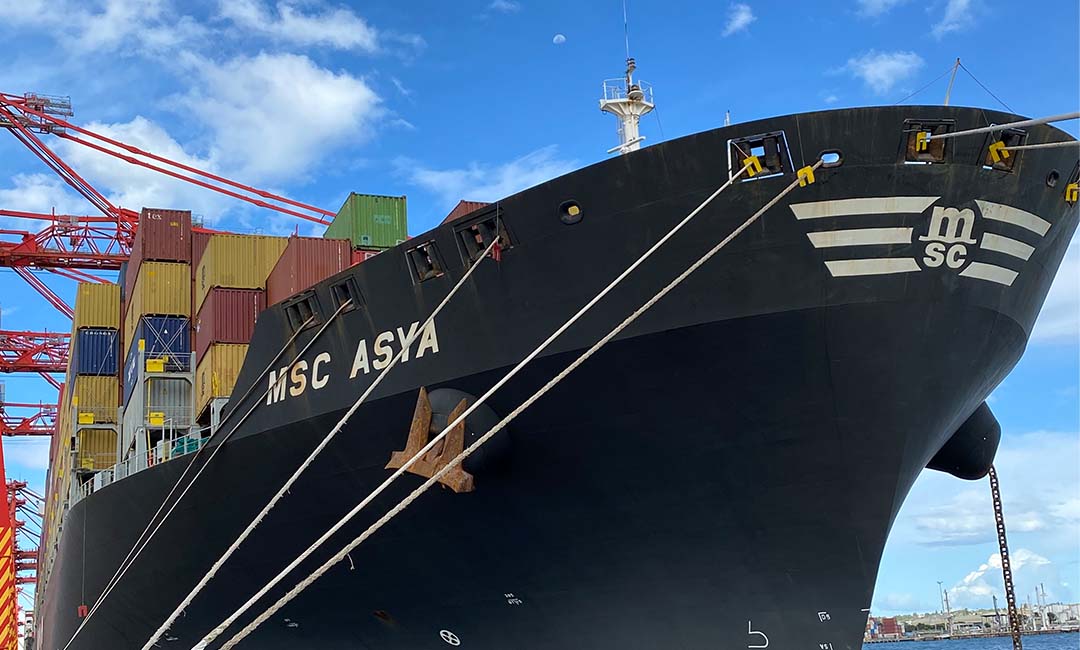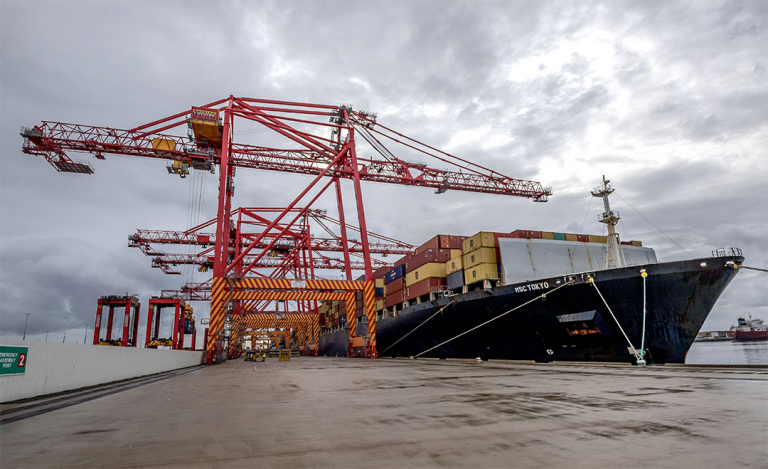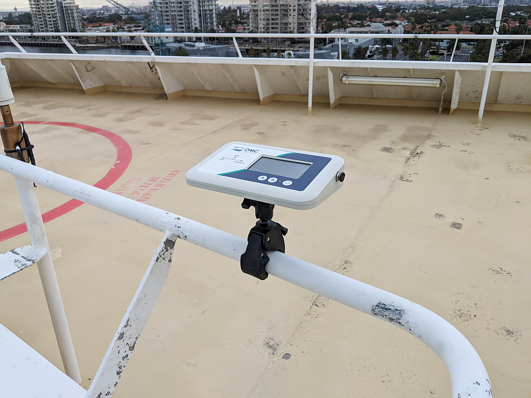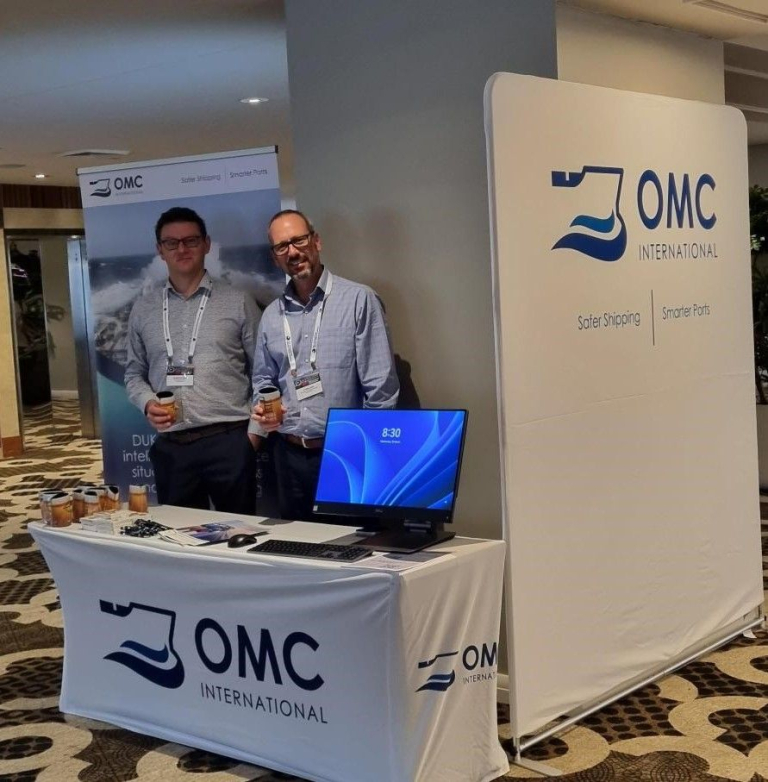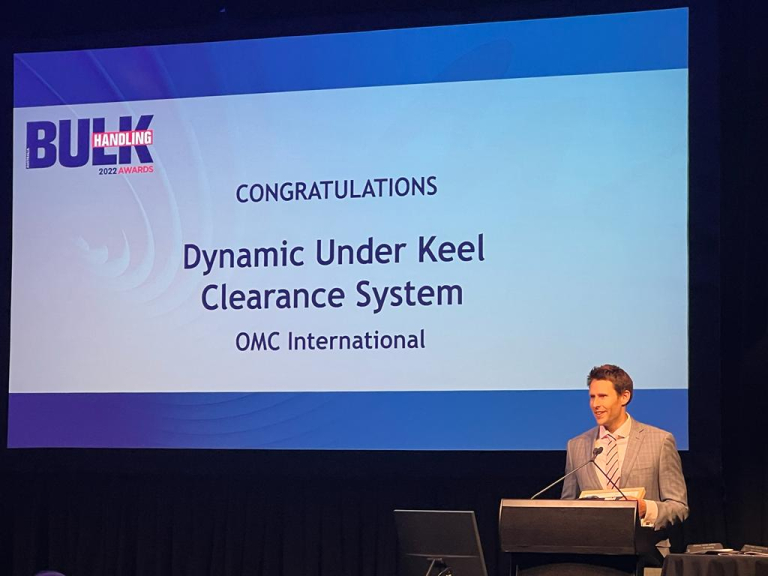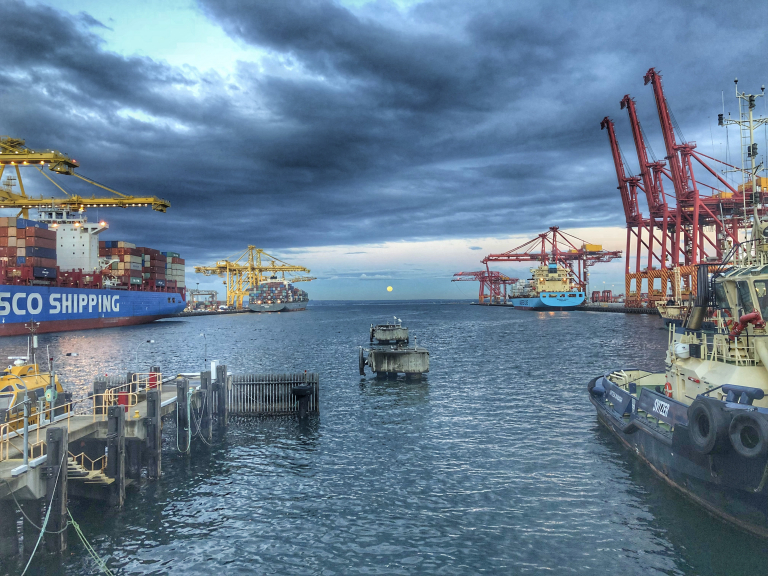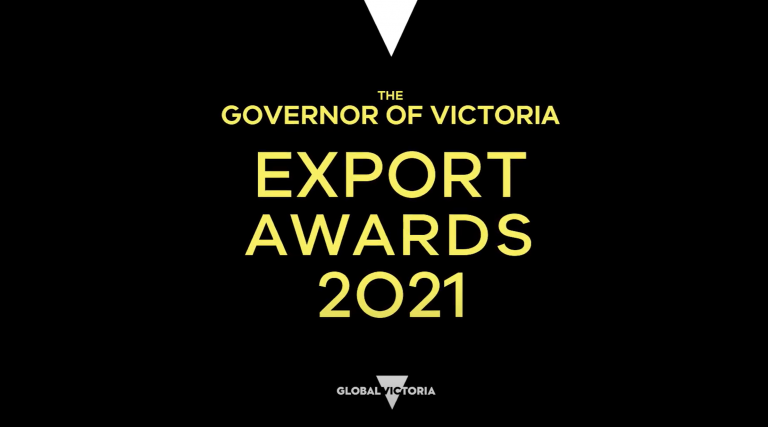Image credit: Port Authority New South Wales
OMC Milestones
2
DUKC installations
3
PortWeather installations
1
BerthAlert installations
Recognised at The GOVEAs
Winner of the 'Advanced Technologies Award'
New product released
TransitAnalyst takes the data relevant to, and produced by pilots and hands it back to them in a searchable form.
Client records
The OOCL Canada, measuring at 335m long, 42.9m wide, with a displacement of 120,000 tonnes and 8,888 TEU, becomes the largest and heaviest container vessel to berth at West Swanson Terminal.
At 9200 TEU, the CMA CGM Loire becomes the heaviest vessel to berth at West Swanson Dock.
The Soroe Maersk at 347 metres long and a capacity of 9640 TEU is the largest ship ever to enter the Port of Melbourne.
Pilbara Ports Authority achieves a record-breaking annual throughput of 724.7MT, exceeding 700MT for the first time.
The Port of Bunbury surpasses previous records with an annual throughput of 117.11MT.
With a capacity of 6,730 TEU, the MSC Melissa becomes the largest container ship to sail St. Lawrence River, measuring 303m long and 40m wide.
Bulk carrier, Zagori, sets a new record for Saqr Port, with a draft of 13.18m.
During August, the Port of Geraldton recorded a total iron ore trade of 1,092,166 tonnes, the highest monthly throughput recorded since November 2019.
The Star Crios set a new draft record of 13.25m from the Inner Harbour.
Port Botany breaks records after containership MSC Asya becomes the heaviest vessel to berth, with a displacement of 140,252 tonnes. It is also understood to be the deepest draft containership to ever berth in Australia, with a draft of 14.8m.
STI Condotti becomes the deepest tanker to be welcomed at Port Botany, with a draft of 14.7m, exceeding the previous deepest by approximately 50cm.
Great Wencheng becomes the largest cargo export out of the Port of Geraldton, with a total load of 79,996 tonnes of iron ore.
Client Testimonials
The DUKC technology designed by OMCI is world class and provides Marine Pilots and Harbour Masters such as myself, with highly accurate and detailed data, allowing us to bring very large vessels like this safely into ports they may never have been able to access before.”
“When you consider the size of these vessels and that, like an iceberg, there is an enormous dimension laying under the water, it is essential marine pilots have access to the best technology and a comprehensive range of specific information and data.”Myron Fernandes, Harbour Master
Port Authority New South Wales
“The DUKC system, gave the Port Authority’s highly skilled Marine Pilot the real time information to bring a vessel the size of the STI Kingsway safely into our Ampol terminal at Kurnell for the first time in history – a complete game changer for us”
Capt. Kushal Mitra, Marine Manager
AMPOL
“The algorithm has allowed ships to transport more cargo safely and demonstrated how technology could drive efficiency through the ports.”
“As a result of the Dynamic Under Keel Clearance system, the declared depth availability at the Port of Port Hedland was increased by 71cm in 2017.”
Dynamic Under Keel Clearance (DUKC) has moved the port from a conservative under-keel calculation to a real-time calculation based on tides and weather.nd was increased by 71cm in 2017.”Roger Johnston, CEO
Pilbara Port Authority
"Of course, the adoption of a DUKC system changed all that, and we suddenly realised how the ‘seat of the pants approach’ from the past had been quite dangerous to say the least. The DUKC system at Newcastle is as in most ports today, fundamentally integral to ensure that optimum use of the channel is made in the safest manner for the vessel in the prevailing weather conditions."
Captain Malcolm Goodfellow
Newcastle Pilot
